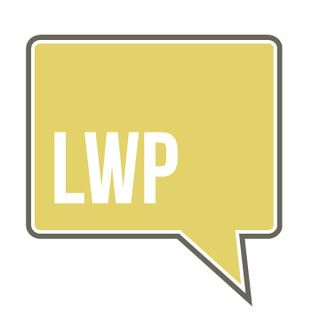At LWP, whether we're on an implementation call or at our Tri-Annual Retreat – or serving elsewhere, we're getting questions about marketing. It seems to be the No. 1 concern. So, we created a bi-weekly marketing roundtable call to give you the space to ask questions or get your marketing needs met. Our last call was all about your marketing plan. Where do you get started? How do you get it started? These are areas we facilitate and talk about on the call, so I encourage you to show up – and participate! I promise, you’ll get something out of it if you do.
You may or may not even be serving in a marketing role in the firm, but it’s something you know you need to focus on, so let’s dig in. So often when I’m on implementation calls I hear that people will table their marketing plan review at their weekly team meeting. Or they have a weekly marketing meeting but they only look at the RMS reporting, not consistently at the marketing plan. So I want to get everyone back on track as we are headed into end of August, with only four months left after that, to make sure you reach your goal.
 We have a theory at LWP that goes like this: “What gets measured, gets results!” So, if you’re not looking at your marketing plan weekly – start! Even if it’s blank, look at it. I can promise you that, if you just spend two hours a week to make progress on your marketing plan action items, you will increase your revenue. The best plans I’ve seen started right there – blank. But they eventually grew until every space was filled out and completed. And that didn’t happen overnight. Also, they almost all start with the attorney in the “WHO” (responsible for) section – but they eventually change to the RMS coordinator landing in the “WHO” section, and that’s when things really start rocking and rolling.
We have a theory at LWP that goes like this: “What gets measured, gets results!” So, if you’re not looking at your marketing plan weekly – start! Even if it’s blank, look at it. I can promise you that, if you just spend two hours a week to make progress on your marketing plan action items, you will increase your revenue. The best plans I’ve seen started right there – blank. But they eventually grew until every space was filled out and completed. And that didn’t happen overnight. Also, they almost all start with the attorney in the “WHO” (responsible for) section – but they eventually change to the RMS coordinator landing in the “WHO” section, and that’s when things really start rocking and rolling.
If you commit only two hours a week, I promise you – with time management and deciding as a team that, come hell or high water, you're going to dedicate time to your marketing plan – you WILL double your revenue. It just takes time, discipline and determination. One of the most common roadblocks I come across on implementation calls is apprehension about that term “marketing.” People tend to clam up a little. And if you have that feeling where you hear “marketing” and you get apprehensive and find yourself shying away from it, I challenge you to think of it differently. Because what you're actually doing is building and nurturing relationships by counseling your clients and advisors. Don’t even use the term “marketing” if it doesn’t sit well with you. Don’t let anxiety paralyze you when it comes to marketing. Make a mental shift and approach it in a way that works for you. Make it your own and interact with it in a way that feels like you are making a difference. Don't think about it like you are “selling” but rather like you are communicating your value in the marketplace.
So, with all that, let’s look at the three different areas on the marketing plan:
• Retail: This is anything you write a check for. It has a slower ROI and has to be consistent and constant, because consistency is the key to your retail marketing. This is ads in newspapers and radio spots, for example. The best thing you can do here is to create a budget. (We do have a call that addresses creating a budget too.) When creating your budget, be honest and realistic. If you only have $500 a month for the next six months, that’s OK. Figure out what you’re going to do with that money and do it consistently; don’t bother if it’s a one-shot deal. Members have said to me so many times, “I ran an ad and no one called or showed up.” The problem is not the page your ad appeared on or the circulation it’s in, it’s the consistency. If you want to brand yourself as the expert in your area, they have got to see you over and over again. Bottom line. In the long haul, your retail marketing does pay off, but you must be patient and stick to your budget. Quitting is a mistake. It takes people seeing you 5-7 times before they take action. Retail takes money and consistency for 6-12 months to work. It’s not a magic bullet. People get so frustrated with their efforts in retail marketing, but branding is important and drives your wholesale marketing. It may take some research to find out the best placement or circulation, but eventually you will identify your ideal market and client, and then you can put your marketing dollars towards that with confidence.
• Wholesale: This is all about your relationships. When starting out in marketing to build your referrals, wholesale is the bulk of your marketing efforts. It’s your blood, sweat and tears, your starting path. It drives business quicker. It’s your face-to-face synergy, strategy, and relationship-review meetings. It’s you showing up, being present to them and demonstrating the value you create. If you have unlimited time and little money, do this and the money will come! Then, once you get it going and you need to hire, LWP can help. The greatest resource you have in this area is your time, and the follow-up is crucial. It won’t be successful if the conversations that you're having don’t have a next action attached to them. I can’t stress that enough! Don’t look at it like it’s transactional, because if you do, I promise you will sound that way and they will feel it. I like to say it’s like you're dating them. You have to realize it takes time to build the relationship, much like dating. Show them that you're interested in a long-term “committed” relationship, and prove yourself! Get into their perspective and create power in partnership.
• Community: This really combines your wholesale and retail. It’s consistency and branding, but it’s not just you donating money. Everyone does that. What community means is bringing the wholesale and retail together and having your face attached to your name/brand, and getting involved. Have the entire team do a walkathon together. Do something like that every quarter. It doesn’t mean just throwing a check at a sponsorship, it means getting involved. It’s being in the community AND developing your relationships. It’s your FIRM participating, making it fun and, at the same time, letting your community see you.
So start bringing your marketing plan to your next team meeting. It may be a mess, it may be outdated and it may even be a blank one that you print from the website. But have it there. And be the firm advocate for making it a living document. This isn’t just another document you’ve got to bring into the room to make your team or marketing meeting longer or more difficult. It’s the revenue generator for your business, and you must have a conversation around it regularly and be focused and intentional with it. Declare who in the office is going to own it, and I strongly encourage you to assign someone other than the attorney because those are the plans that are the most successful.
Take it seriously for the months of September, October, November and December. And you only have to take it one step at a time. If you just take two hours a week to work on one item per quarter from either your wholesale, retail or community plan, it will make a huge impact on the revenue in your firm. So my challenge to you all is to send me your current marketing plan – rdrotar@lawyerswithpurpose.com. I’m happy to review it and give you feedback and really support you with implementation of your plan before the end of the year.
If you want to learn more about Lawyers With Purpose check out our Practice With Purpose Program in October. Click here to look at the full agenda or contact Molly Hall for more information – mhall@lawyerswithpurpose.com
Roslyn Drotar – Coaching, Consulting & Implementation, Lawyers With Purpose
 I recently read an article by Daily Mail UK that states we waste 69 minutes a day procrastinating, a study claims – three years of our adult life. And one in five of us waste more than two hours a day putting off what we should be doing. Read more:
I recently read an article by Daily Mail UK that states we waste 69 minutes a day procrastinating, a study claims – three years of our adult life. And one in five of us waste more than two hours a day putting off what we should be doing. Read more: 

















